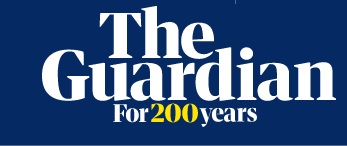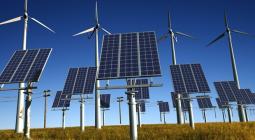EU bans ‘misleading’ environmental claims that rely on offsetting
Products and services billed as climate neutral, biodegradable or eco must provide proof, with carbon schemes banned as evidence
Terms such as “climate neutral” or “climate positive” that rely on offsetting will be banned from the EU by 2026 as part of a crackdown on misleading environmental claims.
On Wednesday, members of the European parliament [MEPs] voted to outlaw the use of terms such as “environmentally friendly”, “natural”, “biodegradable”, “climate neutral” or “eco” without evidence, while introducing a total ban on using carbon offsetting schemes to substantiate the claims.
Under the new directive, only sustainability labels using approved certification schemes will be allowed by the bloc. It comes amid widespread concern about the environmental impact of carbon offsetting schemes, which have often been used to justify labelling products “carbon neutral”, or imply that consumers can fly, buy new clothes or eat certain foods without making the climate crisis worse.
“This new legislation puts an end to misleading advertising for supposedly environmentally friendly products and thus enables consumers to make sustainable choices,” said Anna Cavazzini, the Green MEP and chair of the Committee of the Internal Market and Consumer Protection.
“I am particularly pleased that claims such as “climate-neutral” or “climate-positive”, which are based on CO2 offsetting, have been completely banned from the internal market. Investments by companies in climate protection projects are welcome and of course they can still be communicated,” she said. “However, it should no longer appear that planting trees in the rainforest makes the industrial production of a car, the organisation of a soccer World Cup or the production of cosmetics climate neutral. This deception is now a thing of the past. This is a great success for the environment, the climate and consumers.”
The directive comes after months of negotiations over how environmental claims will be regulated in the EU, with a deal reached in September that was approved by law makers on Wednesday. Member states now have two years to introduce the new rules.
In January, the Guardian published a joint investigation into forest carbon offsets approved by the world’s leading certifier that big corporations used for their sustainability commitments, finding more than 90% of offsets from a large sample of projects to be worthless.
Environmental NGOs have raised concerns about claims based on offsets, including the 2022 World Cup in Qatar which was advertised as a “carbon neutral” event.
“This agreement is a big step towards more honest commercial practices and more informed European consumers. The European Union is taking leadership in combating greenwashing,” said Lindsay Otis, a policy expert on global carbon markets at CMW. “Carbon neutrality claims have been shown to be unintelligible to consumers, and they must stop. Today marks the end of outlandish and baseless advertisements that tell European consumers that they can take carbon-neutral flights, wear carbon-neutral clothes, and eat carbon-neutral food.”
Cover photo: Under the new directive, only sustainability labels using approved certification schemes will be allowed. Photograph: Panther Media GmbH/Alamy





